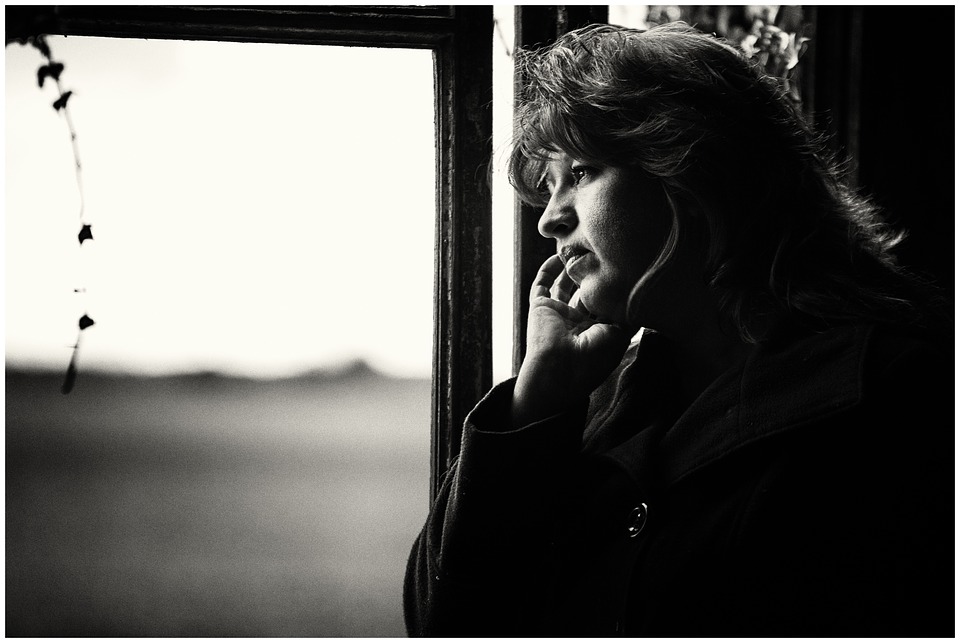I’ll admit it. When the news broke that 52 year old rock star Chris Cornell had died, the name didn’t ring a bell. But, based on the reactions of my social media friends, I knew his music had touched many lives. As I read about his death, which was ultimately ruled a suicide, I saw that it triggered many unpleasant memories for those who had lost a spouse to suicide. And, most cruel of all, I read the comments posted below each article that talked of Chris’ death. They were unkind, unrelenting and at times ignorant.
One particular comment stood out to me. Some naïve soul posted the reasons why her husband would never kill himself. Though I didn’t lose a spouse to suicide, I lost a close college friend. It was this same logic – my friend would never kill himself because… – that looking back, caused me to be dismissive of even the thought of suicide.
I was 19 years old and dumb. I had no clue more people die by suicide (34,598) than by homicide (18,361) in the United States or that it is the eleventh-leading cause of death across all ages. It’s been over 15 years since Randy’s death and unfortunately the stigma of suicide remains. It’s so often misunderstood that people continue to bash the surviving family and friends, asking why they “missed all the signs” or why they didn’t “get their loved ones help”.
Sometimes, it’s not so black and white. Sometimes, you’re naïve. Sometimes, there are no warning signs. Sometimes, you convince yourself that the person has too much to lose to consider suicide. Sometimes, you’re the one who is suicidal and believe him to be the “stronger” spouse. Sometimes, you do intervene and fight to save your loved one, but yet the demons still win; the addiction still wins.
ADVERTISEMENT
I recently spoke to a group of women who lost a spouse to suicide. They shared their responses to “I Didn’t Think My Spouse Would Have Killed Him/Herself Because…”
…he was a minister, born and raised in the church and came from a “good church family”.
…I was the one diagnosed with high functioning depression and had more of the risk factors.
…I thought he was too narcissistic to actually do it.
…he was loved by everyone in the community.
…I just never in the stratosphere of my thinking ever think he ever would.
…she said she was my always and forever, forever and always.
…we had three young kids and they were his world.
…our fight would just blow over.
…we had whatever you could want from a financial/worldly perspective.
…he was afraid to die. He said he wanted to live forever and see our grandkids.
…he wasn’t that smart. It didn’t seem like he would know how and be successful.
…he had many bad things happen to him and this seemed like the one thing he could fix and save.
…he was my husband and we went to bed together for over 12 years and he never gave any indicator he wanted to give up in life or leave us.
…he was appalled at the fact that a friend of ours had hung himself three months prior, leaving behind children.
…he recognized his symptoms enough to have them ‘maintained’.
…he loved me.
…always took care of his mind and his body.
…after years of homelessness and illness there was finally an end in sight and bills were being paid on time for the first time in our relationship.
…he was in counseling and had a psychiatrist.
ADVERTISEMENT
…he never admitted to suicidal thoughts even when directly asked by mental health professionals.
…even though his depression was loud and very obvious, his fight for love and happiness was bigger.
…he never said he was depressed or ever mentioned wanting to die so it was completely off my radar as anything remotely possible.
…we had bought our dream home.
…we had a two year old son who we tried for 10 years to have.
…he had talked about plans for the next day and the future in general.
…he had a fulfilling long-term career where he was well liked and respected.
…he was strong; I thought he could conquer anything.
…he promised me he would never do it and he was a man of his word.
…we were expecting our first child.
…he was just making me sweat things out.
…I just didn’t think he’d do it…even after he did.
Suicide is not a simple thing. Though there can be cause-effect; often times there’s not. Typically, the family is left to try to make sense of the death. To recall every conversation, every detail that seemed insignificant at the time to search for clues. To preserve memories of happier times for children. To cover dark secrets. To deal with the guilt. To realize they’ll never get all the answers to the questions that replay in their mind. To heal from the devastating loss…
Suicide doesn’t always fit into a mold.Yes, it may be a depressed spouse spiraling into a dark hole as he battles mental health issues, but it can also be the happy-go-lucky spouse who coaches Little League soccer and always has a kind word for friends and neighbors. We need to shatter the stereotypes of what a suicidal person looks like and provide more resources for intervention as well as assistance for those left in its wake.
If you or a loved one needs help, please consider seeking out to a professional or contact the National Suicide Prevention Lifeline for tips and resources.
Mom to a feisty preschooler, Kerry Phillips became widowed at age 32. She runs an online support group for young widows and widowers venturing back into the world of dating and is a blogger for The Huffington Post.
RESOURCES:
ADVERTISEMENTS




Incredible article! Thank you for putting it out there so other’s may not feel so displaced being a widow of suicide.
It’s an important conversation to have for sure. Thanks
Thank you. As always your writing touches my broken soul and sore heart. Whether in understanding,humor, agreement, feeling relieved that some one else has been there..or just through your amazing talented gift of the written word
Thank you, Marina!
i am amazed that i have had these same thoughts of why he would never do it … but he did 2 years ago
I may no longer be young, but having lived with my husband of 48 years I battled every day wondering when my wounded minister father of 2 and grandfather to 5 would take his own life. He left me and our grieving family in 2015, I’m trying to move on, as he wished that I would, but I will always miss him, and regret not being able to keep him here with us.
Hugs to you, Anne.
I remember it like it was yeaterday…1st December 2013.I found him cold in our home.
I was 31.
How does one move on past that?
The day my life changed,i changed.
Does one ever get used to the ‘new normal’?
I don’t think you get “used” to it. You just learn to exist around it 🙁
Thank you this is a good article. I am a spouse who lost their husband to suicide. He gave me not indication or warnings that he was suffering or considering this horrifying act. I found him late at night after I came home from a business trip. The last time we spoke he seemed fine. Looking back maybe there were some oddities happening but NOTHING could have prepared me for this and NOTHING pointed to ending his life. It is a shock. I was 35 and he was 38 we had it all really (I thought). We had been together 12 yrs married almost 5. This happened 8 months ago. For those going through this it is a specific kind of loss and hard to find others like you. Please feel free to follow my blog or comment as I enjoy helping each other through this very difficult loss and hearing what is helping you make it through a day.
Where is your blog? I lost my husband 5 was ago …
Thanks for sharing
I lost my husband a few weeks ago to suicide. I am 32.
My partner took his life on January 17 2018 at around 330 PM. I am online looking for others and advice on how to cope.
Tonight when I was looking for the remote for the television I found a bullet on the floor underneath his side of the sofa.
This is all so heartbreaking and I feel so responsible for not having reached out to him in a more l8ving and understanding way. I feel like I could have prevented it from happening if I hadn’t been pushing him so hard to stop drinking so much and telling him he had to get help.
I pray for you that you will reach out to others and your heart will heal and your mind will also find peace.
I can imagine and do know what you are going through. I am so sorrry for the pain you are going through right now.
I lost my husband to suicide on January 19, 2018. He was 42, I’m 40. We were high school sweethearts together 25 years with 2 beautiful children. It’s just not fair, and doesn’t make any sense. I don’t know a life without him in it. I’m so sorry for your loss.
Hugs. Please be sure to reach out a support group – online or in -person – to help you cope with what must be overwhelming circumstances.
I am too a wife that lost her husband to suicide, on February 9, 2018 my world crash down on me and I am struggling to make it above water. Know that I am not a lone is helping but I still like I am drowning. I have been with my husband for 12 years and married ten. I have lost my best friend and father to my three angles. Thank you for the article.
My husband hung himself in our kitchen a few hours after I asked for a divorce. We had been together 23 amazing years of travels, school, work, and many moves. The last few years were tainted with his drinking. However, he was well respected and highly functional in his work, among our friends, and by our neighbors. How could I have wanted to leave this amazing man? I was blind and ungrateful toward his efforts to try to save our relationship because I was done. I no longer wanted to try. The cycle worsened -he wouldn’t stop drinking (which brought out an ugly, angry, mean side of him) and I became more distant, which caused him to drink more. No, did not cause him to drink more, but lead to him choosing to drink more to deal. Neither of us dealt well with our dissolving relationship. We should have been open and honest about our feelings and not saving our pride, not wanting to admit what was happening. I one year ago yesterday changed the world. Guilt should only serve as a learning tool then be discarded, so my mind says. But my heart says penance for a lifetime because my selfishness lead to the loss of a beautiful soul. If anyone is thinking of leaving his/her spouse I now try to ask them reflective questions about what brought them together initially and what they need to happen in order to be happy again. To consider these questions and what “work” is needed to maintain a relationship. I’ve always heard that but did not know what “work” meant. Maybe it means you do what you need to do in order to have the lift you want, even if it means taking turns being the one who swallows his/her pride in a relationship.